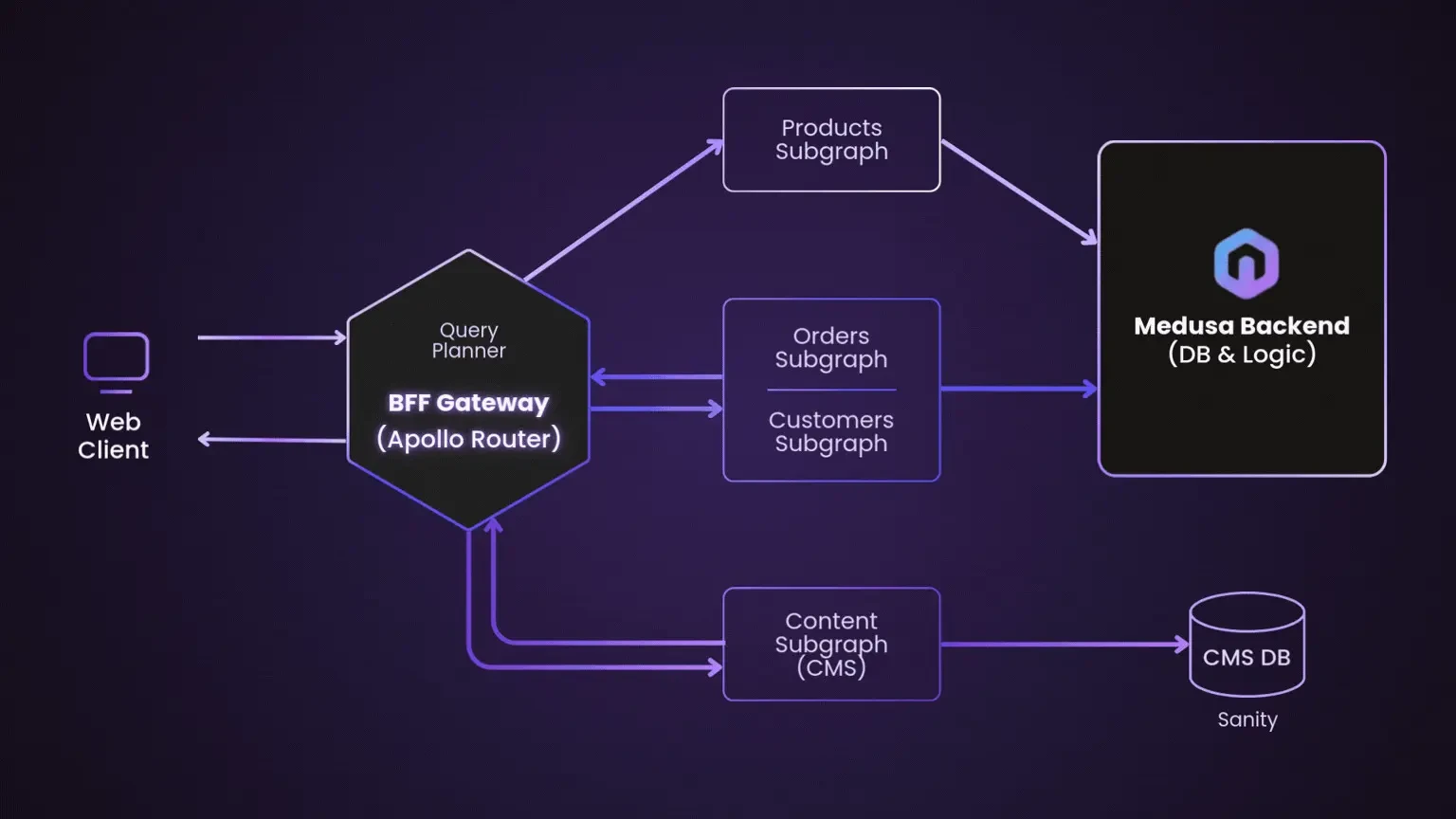
What Is the Key To A Successful Headless Commerce Storefront?
About the Author
My name’s Kane Balagtey. I have been working as a front-end developer for the last 13 years. I have led and contributed frontend code to countless websites ranging from:
- 15 high transactional international commerce websites (Balsam Brands, Beaverbrooks, Betterware, FitFlop, GHD, G-Star, Gucci, LK Bennett, LVMH, Mulberry, Razer, Solstice Sunglasses, Tesco, Total Defense, Wilko).
- 2 Scaleups (Moo, Truphone)
- 2 Startups - one startup sold (Findababysitter) and another failed (QuizFactor)
- 3 non-profit & public services (The Prince’s Trust, Wycombe Council, Crown Agents)
- 1 partner management SaaS platform serving large enterprises (CA Technologies, NetApp, LenovoEMC, SAP AG, WSP Group)
- And 15+ smaller websites in my freelance career that though are now gone, have taught me much more than code…
Before you read
A quote sometimes attributed to Albert Einstein,
“The definition of insanity is doing the same thing over and over again, but expecting different results.”
In this article, I assume you're looking for better results by moving to a headless storefront. My goal is not to rehash a headless commerce benefits argument. Instead, I want to provide you with the next step and turn your vision into reality.
The key to a successful headless commerce storefront is a good frontend developer.
What do we mean by a “Good” Frontend Developer?
Contrary to popular belief, frontend development is not a subset of software engineering. Frontend development is a generalist skillset touching a wide range of concerns from engineering, design, user experience, content, SEO, analytics, and so on.
Frontend development is about gluing technology, business, and creativity. The goal is to present the customer with a narrative that shows them why your goods and services fulfill their needs. Good front-end development is all about customer experience.
What is the main responsibility of a Good Frontend Developer?
81% of customers said trust is a deal-breaker or deciding factor in their buying decision.
Customers buy from brands and retailers they trust.
If you think carefully about it, your front end is the most important asset under your control to build and maintain customer trust. The frontend developer is the technical person in charge of your trust execution.
Here’s a list of frontend responsibilities affecting your customer trust. Each topic deserves its own article, but the overview is helpful for those who care about the bottom line.
Customers trust good Performance
Performance is about maintaining customer trust.
When your website is slow, your customer leaves. Google performance recommendations are all frontend related. If you want a fast website that maintains customer trust get yourself a good frontend developer.
In my career, I have written and audited so many websites for performance improvements. A good performance report should always include the following items:
- Measurement of performance impact
- Competitor analysis
- Actions to address performance issues
- Mitigation and automation strategy to embed a performance culture in your engineering teams
Frontend developers with performance skills are technically inclined. They know about caching strategies, data aggregation, browser and network specifics and resource budgeting.
Customers trust good Accessibility
Accessibility supports your brand reputation.
Concern for people's needs leads to greater customer trust. Moreover, breaking the US ADA law can tarnish your reputation when the word gets out. Hire a good frontend developer who cares about accessibility, and you will worry less about getting sued.
Other benefits of accessibility include:
- Better SEO improvements. An accessible website is a crawlable website.
- Digital natives heavily use accessibility features like keyboard navigation, subtitles, dark mode etc.
- Accessibility enforces website component best practices. This leads to better software maintainability and predictability. Put simply, accessibility not only helps customers but developers as well.
Frontend developers with good accessibility sense are those who worked with charities, NGOs and government websites. Even before the US ADA law, accessibility has been used by non-profit organisations to build trust.
Customers trust good Usability
Do you trust people that are hard to get on with? I guess not. Customers feel the same way about clunky websites. Customers leave your website when it's hard to use.
Usability is the art of making something easy to use. A familiar and consistent website is easy to use, that’s why ecommerce often look and work the same.
Designers are responsible for beauty, UX is responsible for user research & flows, but frontend developers are responsible for the final result. Hiring a good designer or UX is not enough. Customers do not tap on designs or wireframes. Customers tap on the website built by frontend developers.
Frontend developers with good usability sense are those who worked with luxury brands (design), product startups (UX), and those who worked in the industry for at least 10 years.
10 years ago, UX roles were not common. Designers and frontend developers needed to learn UX. Today, frontend development no longer emphasise good usability; just good engineering. Newer frontend developers often lack design and UX flare since the job market has shifted to a technical focus.
Customers trust good Media
Have you been to Youtube or Instagram lately? Perhaps your kids like TikTok or Snapchat? If so, then you know how important media is for educating/influencing customers. Education is the first step to building trust.
A good frontend developer is someone who understands media well.
- Responsiveness and device targeting
- Performance and quality sharpening
- Media motion, video controls and streaming
The greatest challenge for media is the ubiquity of Digital Asset Management (DAM) with poor execution. A good frontend developer should be able to assess various DAM solutions and advise correctly.
Customers trust good Data Privacy and Security
When was the last time you heard of a data breach, and what did you think of that organisation?
A brand's reputation is constantly under threat because of data breaches.
As Warren Buffet famously said,
“It takes 20 years to build a reputation and five minutes to ruin it. If you think about that, you'll do things differently”
High profile cases like the British Airways Data Breach happened on the ecommerce storefront. A good frontend developer would have spotted that issue saving British Airways a whopping £2.4 billion payout.
If you don’t invest in your frontend, prepare to pay a higher price.
Customers trust good Search Engine Optimisation (SEO)
Customers trust brands at the top of Google search results.
SEO agencies struggle with monolith commerce platforms due to their lack of SEO flexibility. In the headless world, every SEO requirement is achievable, giving your business a serious edge over monolith commerce competitors.
The frontend developer is responsible for implementing your technical SEO strategy. This includes:
- Structured markup and HTML semantics,
- meta and link tags - Robots, HREF Langs, canonicals,
- website component architecture, server-side rendering (SSR),
- URL strategies, trailing slashes and many more...
A good frontend developer can architect an SEO-friendly storefront. Failing to do this early will cost your business search rankings.
Customers trust good Personalised Experience
Personalisation is either helpful or creepy. Netflix personalisation strategies are helpful. Google Ads stalking you just because you visited a website once is creepy. Don't you agree?
When you get personalisation right, your customer feels respected because you know what they want.
I’ve worked on a few personalisation projects (successfully, of course!), and personalisation is hard to get right. Like an orchestra, various specialisations need to play well together to make music. You need to consider:
- customer segmentation and CDP platforms,
- analytics & reporting,
- technical implementation,
- experience management and MVT testing.
When you throw in a headless storefront, personalisation becomes even more complicated.
A good frontend developer can help you bake in a personalisation strategy as part of your storefront architecture. Failing to do so will mean more cost later to restructure URLs, change content workflows and caching strategies.
What else can a good Frontend Developer help with?
Investing in customer trust leads to long term success. However, the immediate success of your storefront delivery is also worth considering.
A good frontend developer can also help you make wise technology investments for your storefront.
Businesses should NOT care about JavaScript Frameworks
Frontend technology frameworks do not matter to your customer. All code served to your customers' web browser is compiled into 4 main assets - HTML, CSS, JavaScript and Media.
A good frontend developer is not passionate about specific JavaScript frameworks. They use the right tool for the job. Frontend developers opinionated about technology frameworks are typical of junior stature. They are yet to be bored by technology that achieves the same results.
The lack of a good frontend developer leads to unmaintainable systems built with geeky tools but serve no customer benefit. This leads to slow disjointed experiences with bloated cost and complexity.
Businesses should care about good Engineering
A well-engineered storefront is a storefront that stands the test of time.
While the rise of SaaS platforms and cloud infrastructures make good engineering less important, it's not yet irrelevant. You still need good engineers if you require:
- Orchestration of multiple microservices
- Building a storefront from scratch
- Heavy customisation of a SaaS storefront
From experience, I witnessed organisations spend millions of pounds only to replatform two years later. Bad engineering costs money.
A good frontend developer is a good engineer. Spot engineering capability by looking for heavy checkout customisation experience or those with experience building SaaS platforms.
Conclusion
I could carry on writing but it would result in a few books.
In summary, customers buy from brands and retailers they trust. A good frontend developer can help you build and maintain customer trust that leads to sales. Furthermore, they can help you make wise technology investments for your storefront.
If you want a successful headless commerce storefront, hire a good frontend developer.
Agree? Drop your thoughts and questions in the comments section.
Alternatively, if you're looking to take that next step to headless storefronts, reach out to me via LinkedIn private message. Happy to help!
About the Contributor
 Kane BalagteyView ProfileFounder & Director, GFED
Kane BalagteyView ProfileFounder & Director, GFED
Discuss this topic with an expert.
Related Topics

Evolving Storefront Architecture with Backend-For-Frontend (BFF)As our clients expanded into new markets and channels, maintaining separate integrations for each API became costly and time-consuming. Our platform’s adoption of GraphQL changed that — creating a single data layer that unifies product, pricing, and content APIs into one flexible interface.

Level Up Shopping: How Gamification Is Transforming E-CommerceHow AI and Playful Design Are Redefining Customer Loyalty

Invisible UX: When the best interface is no interfaceTurns out less really is more.